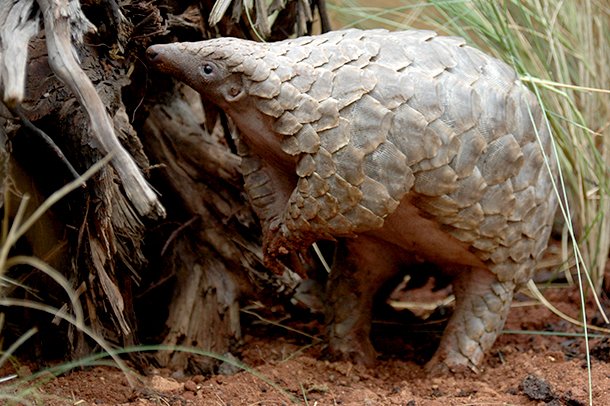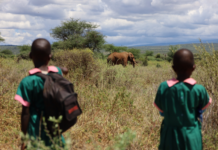By Clifford Akumu
The dwindling population of pangolins in Asia and Africa is worrying animal welfare campaigners.
It has emerged that due the demand for their scales and meat their population has continued to decrease over the years.
Small and scaly-pangolins are the world’s most illegally traded mammal and in danger of extinction. Pangolins are beaver-sized ant-eating mammals found in the tropics and subtropics of Africa and Asia.
Pangolins are believed to have curative properties in East Asian medicine, and their meat- is highly regarded as a symbol of status.
“Pangolins are falling prey to the ultimate predator: humans,” said Mark Hofberg, campaigns officer, International Fund for Animal Welfare during 6th annual World Pangolin Day.
“The rate at which pangolins are being poached is unprecedented and unsustainable. The value we place on pangolins should be for their role in the wild, not as a status symbol”
While these armored creatures once inhabited vast portions of Asia and Africa
Therefore, since 2015, based on media reports of seizures and the INTERPOL figure, we estimate that over 420,000 pangolins have been poached and trafficked.
According to data analyzed by IFAW, last year alone, there was a staggering number of seizures of pangolin scales and meat in source countries, transit countries, and market countries.
Despite victories, Hofberg says that pangolins still need protection.
Last summer alone, Hong Kong seized 13.4 tonnes of pangolin scales in three separate seizures originating from Cameroon, Nigeria and Ghana. In December, China seized its largest shipment of pangolin scales ever (3.1 tonnes from Nigeria), while Malaysia seized 2.9 tonnes in transit from the Democratic Republic of Congo.
Interestingly, reports available online show that dating back to 2015, there have been at least 74 seizures of pangolins and pangolin products totaling about 2,300 whole pangolins (alive or dead), over 7,800 metric tons of frozen pangolin meat, and over 45,000 metric tons of pangolin scales.
IFAW estimates that these seizures represent approximately 42,000 pangolins poached from the wild and illegally traded.
To put that number in perspective, seizures found in the prior two years (2013-2014) represent an estimated 18,500 pangolins poached and illegally traded.
Furthermore, the amount seized represents only a fraction of the actual trade; INTERPOL estimates that only 10 to 20 % of contraband is actually found by authorities.
IFAW has been leading efforts to increased protections for pangolins in the U.S. and internationally.
Working in conjunction with other NGO’s, IFAW petitioned to get all eight species of pangolins listed as ‘Endangered’ under the U.S. Endangered Species Act.
This past August an IFAW-led resolution was passed by the IUCN to encourage listing all eight species of pangolins under Appendix I of CITES, the most stringent international protection available – and subsequently, in September, the proposals were passed at CITES CoP 17 to list all eight species under Appendix I.
“Whilst it is horrifying to think that all species are so endangered, we must hope that the new level of protection will save these wonderful animals from extinction before it is too late,” said Jane Goodall-Founder, the Jane Goodall Institute & IFAW Honorary Board Member.
World Pangolin Day is dedicated to raise awareness for this charismatic animal and the truly existential threats it faces.














